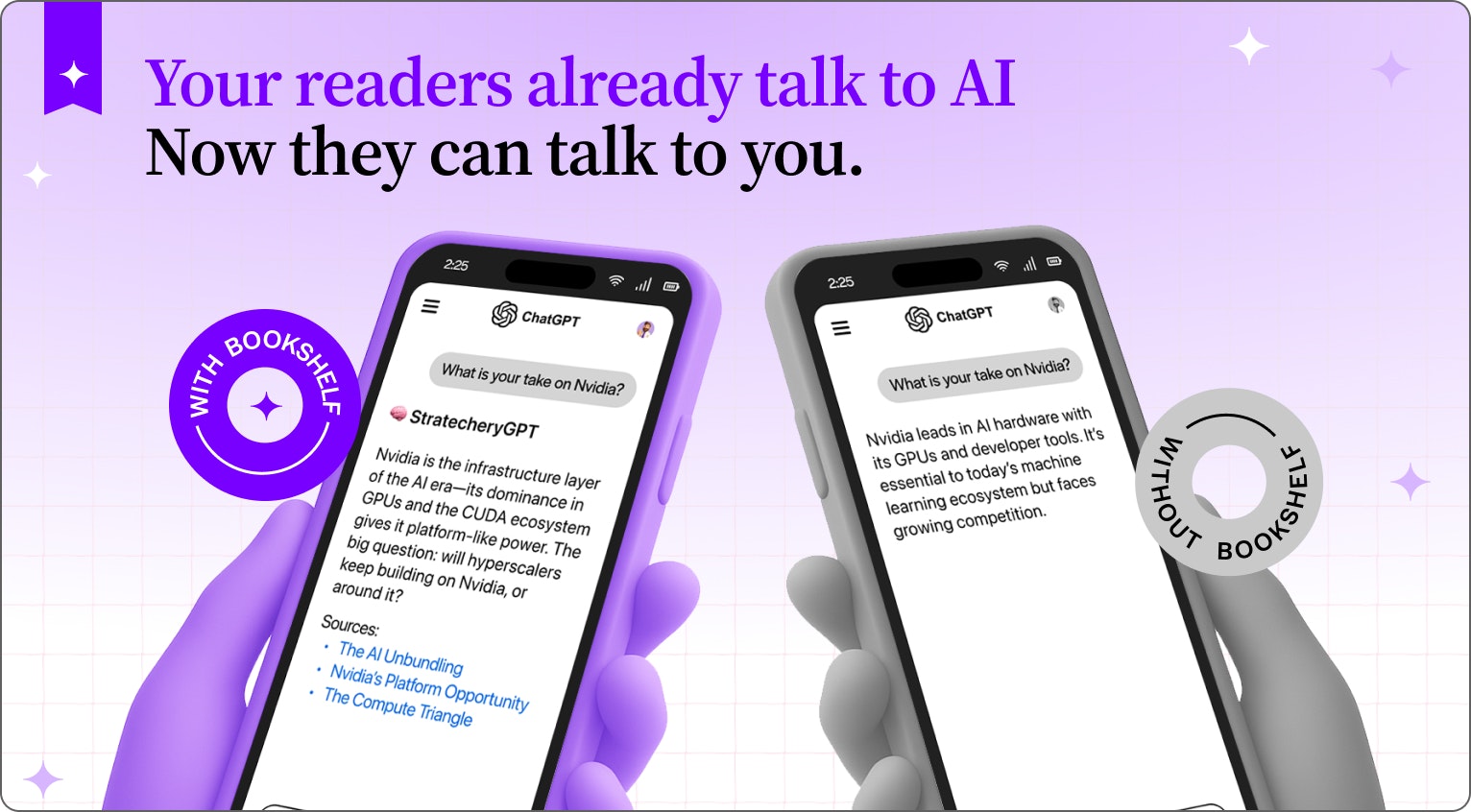
Table of Contents
Overview
In the ever-evolving landscape of digital content, creators are constantly seeking innovative ways to engage their audience and make their vast archives more accessible. Enter Bookshelf, an advanced AI tool designed to transform your newsletter into an interactive, custom GPT. Imagine your readers chatting directly with your past issues, getting instant, accurate answers drawn solely from your unique content. Bookshelf makes this a reality, offering a seamless, no-code solution to unlock the full potential of your written archive.
Key Features
Bookshelf stands out with a suite of powerful features designed to enhance your content strategy:
- Custom GPT integration with newsletter archives: Transforms your entire newsletter history into a searchable, interactive AI assistant.
- No-code setup: Get started quickly without needing any technical expertise or coding knowledge.
- Fast deployment: Your custom GPT can be up and running in just a couple of minutes.
- Archive-based intelligent Q\&A: Provides smart answers sourced exclusively from your uploaded content, ensuring relevance and accuracy within your specific domain.
- Personalized reader interaction: Offers a unique, engaging way for your audience to explore your content on their terms.
How It Works
The process behind Bookshelf is remarkably straightforward. Content creators simply upload their newsletter archives to the Bookshelf platform. Once uploaded, Bookshelf meticulously indexes all the material using advanced RAG (Retrieval Augmented Generation) technology, creating a comprehensive knowledge base. This indexed content is then seamlessly connected to a custom GPT, specifically trained on your writing. The result is an interactive AI assistant that readers can engage with directly, asking questions and receiving answers that are exclusively referenced from your newsletter content, ensuring a highly focused and relevant experience.
Use Cases
Bookshelf offers practical applications for any content creator looking to deepen their audience engagement and streamline information access:
- Engaging newsletter subscribers: Provide a dynamic new way for your audience to interact with your past issues, keeping them on your platform longer.
- Enhancing content discoverability: Make it easier for readers to find specific information or explore topics across your entire archive without endless scrolling.
- Creating interactive FAQ experiences: Turn common reader questions into an instant, AI-driven answer service, reducing your support workload.
- Building a knowledge base from past issues: Systematize your accumulated wisdom, making it a valuable, searchable resource for both new and long-time subscribers.
Pros \& Cons
Advantages
Bookshelf brings several compelling benefits to the table for content creators:
- Easy and quick to set up
- Focused, archive-based responses
- Enhances reader engagement
- Free tier available for testing
Disadvantages
While Bookshelf is a powerful tool, it does come with a few considerations:
- Limited to newsletter content
- Potential accuracy issues if archive is sparse
- Requires sufficient content volume for optimal performance
How Does It Compare?
When evaluating Bookshelf against other solutions, its unique niche becomes clear.
Newsletter-specific tools like AskSubstack offer similar functionality specifically for Substack publications, providing direct integration with Substack’s platform. These tools excel at working within the Substack ecosystem but are limited to that specific platform.
Substack’s built-in features include comment systems and subscription management, but lack the AI-driven archive interaction that Bookshelf provides. While readers can comment on posts, they cannot directly query your entire content archive.
General AI chatbot builders like GPT-trainer offer broader functionality and the ability to integrate multiple data sources. However, they require more technical setup and aren’t specifically optimized for newsletter archives, potentially leading to less focused responses.
Email marketing platforms with AI features such as beehiiv AI, Mailchimp AI, and ConvertKit focus primarily on newsletter creation and automation rather than reader interaction with existing archives.
Bookshelf carves out its own space by focusing precisely on turning your proprietary newsletter content into an intelligent, interactive knowledge base that works across different newsletter platforms.
Final Thoughts
Bookshelf represents a significant advancement for newsletter creators looking to maximize the value of their content archives. By transforming static archives into dynamic, chat-enabled knowledge bases, it offers an innovative way to engage subscribers, enhance discoverability, and build a truly interactive community around your writing.
The tool addresses a real need in the newsletter ecosystem – helping readers discover and interact with valuable content that might otherwise remain buried in archives. For content creators aiming to provide a richer, more accessible experience for their audience, Bookshelf offers a compelling solution to unlock the full potential of their published work.
While the tool has some limitations regarding content volume requirements and platform specificity, its focused approach to newsletter archive interaction makes it a valuable addition to any creator’s toolkit seeking to enhance reader engagement and content accessibility.

